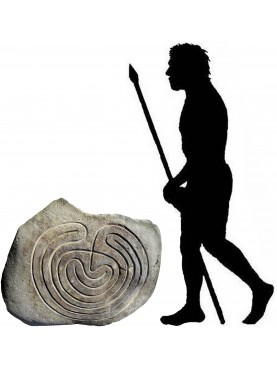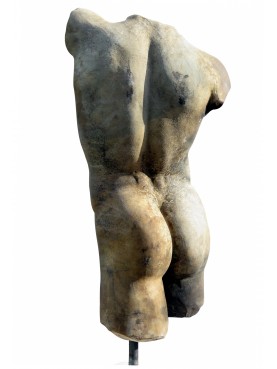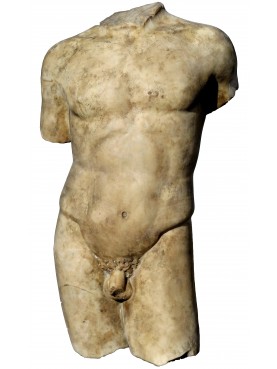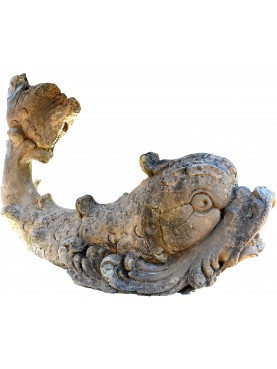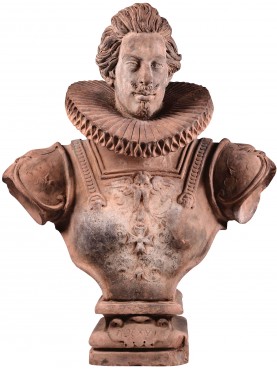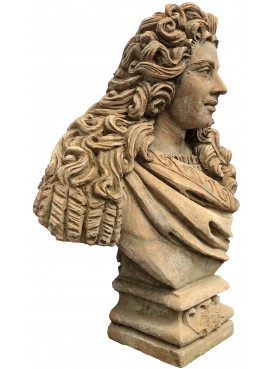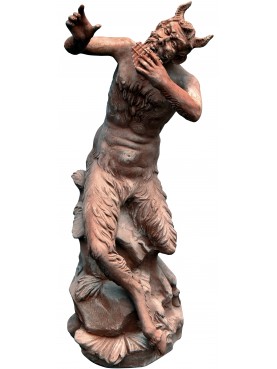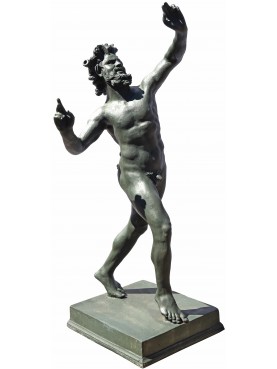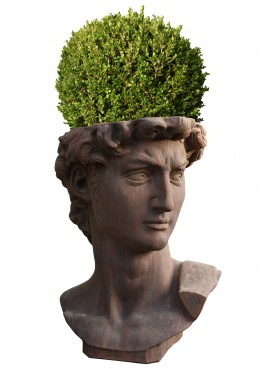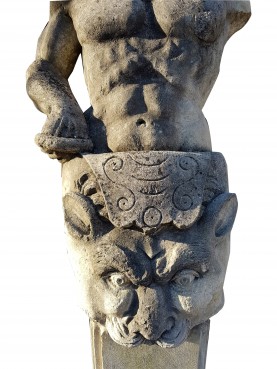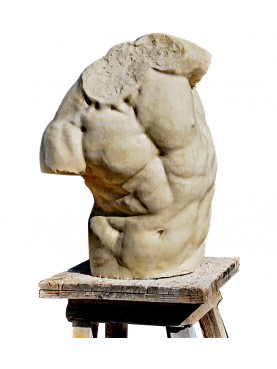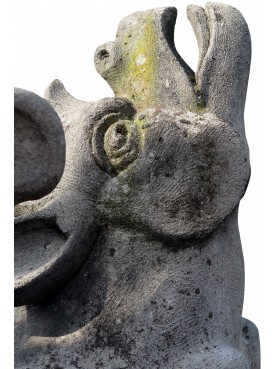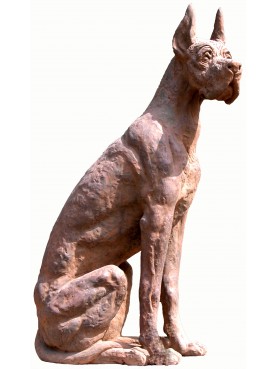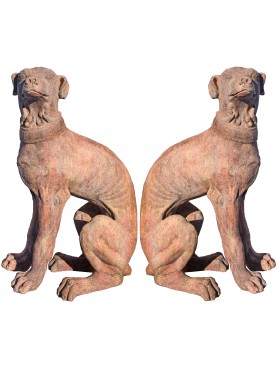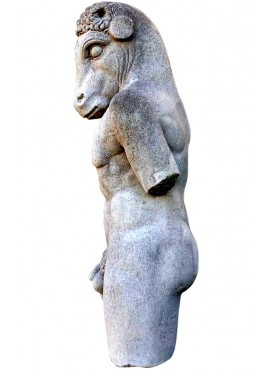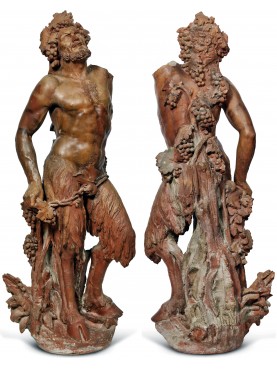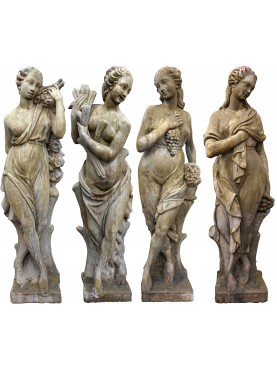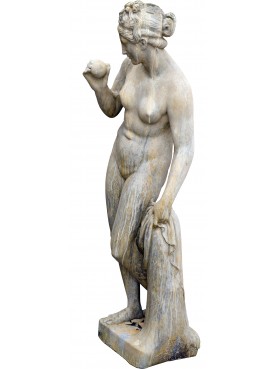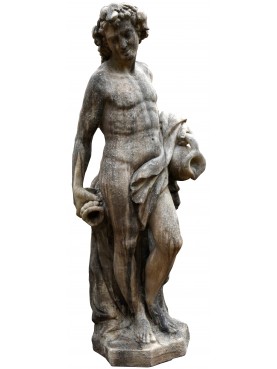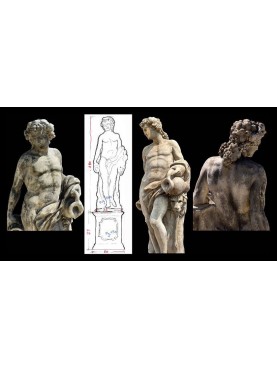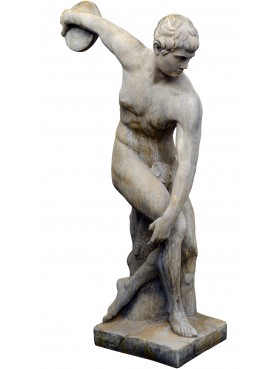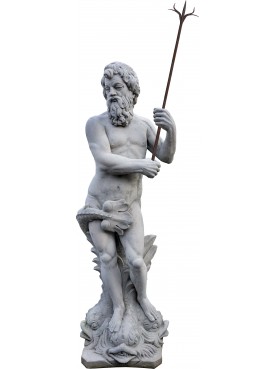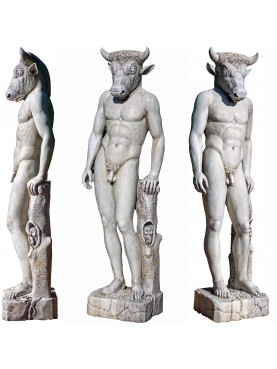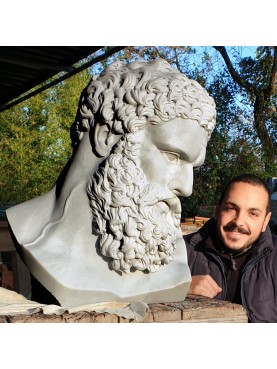Small bust of a Greek Roman satyr in terracotta with base
 View larger
View larger Small bust of a Greek Roman satyr in terracotta with base
15178
Original
Small bust of a Greek/Roman satyr in terracotta.
Terracotta tanagers.

1 Available
Warning: Last item in stock!
Data sheet
| Height | 7.87 in | 20 cm |
| Width | 3.94 in | 10 cm |
| Depth | 4.33 in | 11 cm |
| Weight | 2.2 lbs | 1 Kg |
| Square base | 3.54 in X 3.54 in | 9 X 9 cm |
| Material | Terracotta |
More info
The satyr (in Greek sátyros) is a mythical male figure, companion of Pan and Dionysus, who lives in the woods and mountains. He is a minor deity, personification of fertility and the vital force of nature, connected with the Dionysian cult. In Roman mythology he corresponds to the faun.
Satyrs are generally depicted as bearded humans with goat or equine ears, horns, tails and legs. Comically hideous, they have mane-like or bald hair, feral faces and snub noses, and are always shown completely naked. Their appearance gradually lost, with the passage of time, some animal attributes. They are also represented as lascivious beings, often devoted to wine, music, dancing with nymphs and playing the aulòs. Sometimes they are depicted with a conspicuous and permanent erection. They were companions of the god Dionysus and were believed to live in remote places, such as forests, mountains and pastures. They often attempted to seduce and rape nymphs or mortal women alike, usually with little success. Sometimes they are shown engaging in masturbation or zoorasty.
Their main exponent was Silenus, a minor deity associated (like Hermes and Priapus) with fertility.
In Greek mythology it is said that satyrs were great flute players and that they enchanted with their music. This instrument was the invention of the goddess Athena, who threw it away, annoyed by the way it distorted her cheeks while she played it. The satyr Marsyas picked it up (and was beaten by the goddess for his disrespectful gesture) and began to play it with incredible mastery, so much so that, claiming to be able to play "divine" music, he challenged Apollo (in other versions it was instead the god to challenge Marsyas, jealous of his skill) who promised to let him climb Olympus with him if his music was better than his own, while otherwise the satyr would be punished. The Muses would decide the winner. The satyr, however, was unable to meet the challenge when Apollo began to accompany the lyre with singing, since he could not sing while playing the flute. Triumphant, the god disposed of the satyr and flayed him alive in the presence of the Muses.


